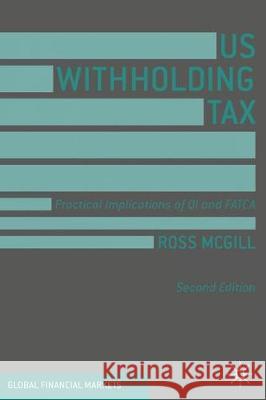Us Withholding Tax: Practical Implications of Qi and Fatca » książka
topmenu
Us Withholding Tax: Practical Implications of Qi and Fatca
ISBN-13: 9783030230845 / Angielski / Twarda / 2019 / 412 str.
Us Withholding Tax: Practical Implications of Qi and Fatca
ISBN-13: 9783030230845 / Angielski / Twarda / 2019 / 412 str.
cena 281,76
(netto: 268,34 VAT: 5%)
Najniższa cena z 30 dni: 269,85
(netto: 268,34 VAT: 5%)
Najniższa cena z 30 dni: 269,85
Termin realizacji zamówienia:
ok. 16-18 dni roboczych.
ok. 16-18 dni roboczych.
Darmowa dostawa!
Kategorie:
Kategorie BISAC:
Wydawca:
Palgrave MacMillan
Seria wydawnicza:
Język:
Angielski
ISBN-13:
9783030230845
Rok wydania:
2019
Dostępne języki:
Numer serii:
000451308
Ilość stron:
412
Oprawa:
Twarda











